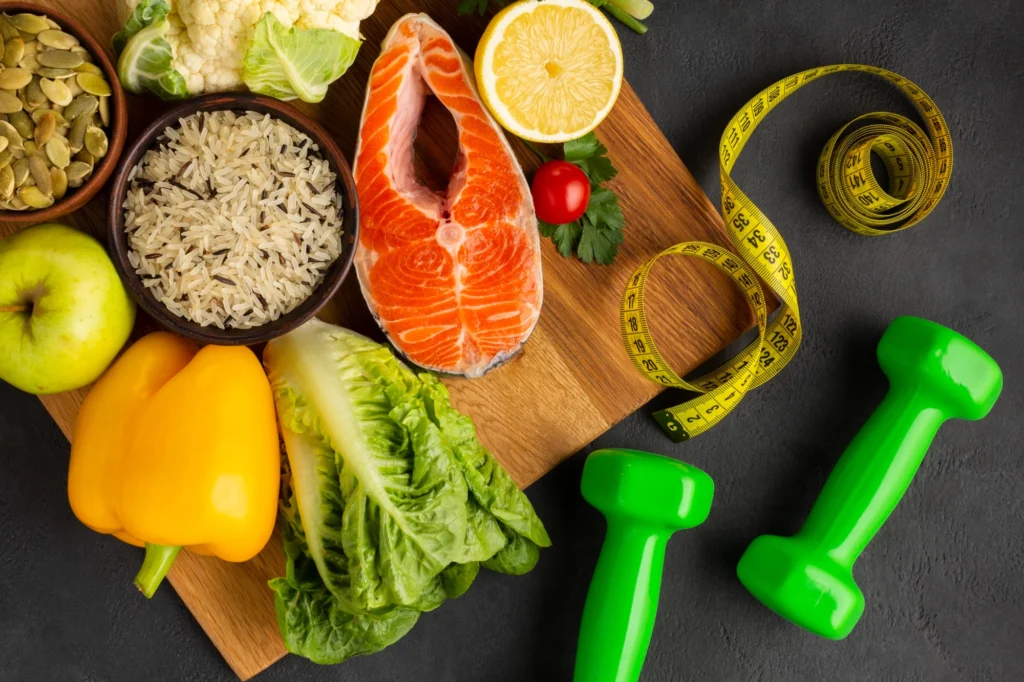Omega-3 fatty acids are one class of fats essential for various functionalities in the body. These essential fatty acids cannot be produced by the body on its own and have to be ingested through the diet, particularly omega-3 rich foods. Known for years for their anti-inflammatory properties, omega-3s offer a long list of associated health benefits that range from heart and brain health down to general well-being.
How Omega-3 Benefits Your Heart, Brain, and Body
Omega-3 fatty acids are anti-inflammatory superstars, reducing risks of heart disease and supporting brain health. Regular intake of omega-3-rich foods like fatty fish can help maintain mental clarity and reduce anxiety.
Heart health:
The benefits have a great function in reducing the risks of heart diseases. It reduces blood pressure, lowers the level of triglycerides, and acts to reduce the formation of harmful blood clots.
Brain Function:
Omega-3s provide optimal brain maintenance and good cognitive functioning; hence, the risks of acquiring Alzheimer’s disease are reduced. Omega-3s also help in keeping and maintaining mental health, thus acting as anti-depressants in a way, and keeping one free from anxiety.
Reduced Inflammation:
Omega-3 fatty acids relieve an individual from chronic inflammation responsible for most diseases, such as coronary heart disease and arthritis. Lowering inflammation will in turn contribute toward better health and well-being.
Eye Health:
DHA is an omega-3 and major structural component in the retina. Omega-3 prevents age-related macular degeneration. They occur in most diets given before and during lactation to mothers. Therefore, these fats play important roles in brain and eye development.
Top Omega-3 Rich Foods Sources for Optimal Health
Fatty fish, like salmon and trout, are among the best omega-3 food sources. For plant-based options, flaxseeds and chia seeds offer a rich supply of these essential fats, promoting heart and brain health. Now that we know how important Omega-3s are, let’s discuss the top food sources to ensure that you’re getting enough of these essential fats.
1. Fatty Fish
A variety of fatty fish, like salmon, mackerel, sardines, and trout, are extremely high in omega-3 fatty acids. They not only are a very good source of omega-3s but also substantial quantities of other nutrients like high-quality protein, vitamin D, and selenium.
2. Chia Seeds
A vegetarian or vegan definitely has everything to love in Chia Seeds—a great source of ALA and an already good amount of Omega-3 from just one tablespoon.
3. Flaxseeds
Another great plant-based food rich in Omega-3 fats comes from flaxseeds. When ground, they can be stirred into smoothies, hot cereal, or incorporated into recipes for baking a nutrition punch.
4. Walnuts
Walnuts are probably the easiest, most delicious way you could increase your Omega-3 intake. Only a handful of walnuts will give you a large amount of ALA with further supplies of Vitamins E and Magnesium.
5. Hemp Seeds
Seeds of the hemp plant are actually underrated superstars. They retain a balanced proportion of Omega-3 and Omega-6 fatty acids; they go fantastically well in your salads, smoothies, and cereals.
6. Algae Oil
Algal oil is a nutritional supplement gaining influence these days, particularly among non-fish eaters. After all, algae are the source of omega-3s for fish; hence, algal oil is directly a source of such vital fats. A study indicates that the omega-3 content in microalgae is comparable to that of various fish, highlighting the potential for microalgae as a valuable source of these essential nutrients.
7. Soybeans
Soybeans and their oil contain enough vegetable Omega-3. Moreover, they are sources of proteins, fibers, vitamins, and minerals; thus, they are multi-targeted within a balanced diet.
How to Incorporate Omega-3s Into Your Diet
Adding omega-3 rich foods to your daily diet doesn’t have to be complicated. Here are some simple and delicious ways to ensure you’re getting enough of these essential fatty acids:
1. Start Your Day with Seeds
Sprinkle chia seeds or ground flaxseeds on your oatmeal or yogurt. These plant-based powerhouses are an easy way to kickstart your omega-3 intake.
2. Opt for Fatty Fish Twice a Week
Include salmon, mackerel, or sardines in your meals. Try grilled salmon with a side of steamed vegetables for a heart-healthy dinner.
3. Snack on Walnuts
Keep a handful of walnuts as a go-to snack because they’re rich in ALA omega-3s and make a nutritious alternative to processed snacks.
4. Algal Oil for Vegan Diet
If you’re vegetarian or vegan, consider adding algal oil to your routine. It’s a direct source of DHA and EPA, much like fish oil.
5. Enhance Your Salads
Add hemp seeds or a drizzle of flaxseed oil to your salads for a nutty flavor and an omega-3 boost.
6. Switch to Soy
Use soy-based products like tofu, edamame, or soy milk as part of your protein intake. They’re not only rich in omega-3 but also versatile in cooking.
Conclusion
Incorporate Omega-3s into your daily diets. It can be found in plant-based chia seeds and flaxseeds or, on the other hand, in fatty fish like salmon. Taking in Omega-3 rich foods regularly has benefits for health, heart, and brain. Adding these types of foods into your diet will do much to support good heart health and brain functioning while keeping the rest of you optimized in the process.
Explore other posts on this blog for more tips on organic and healthy eating.


